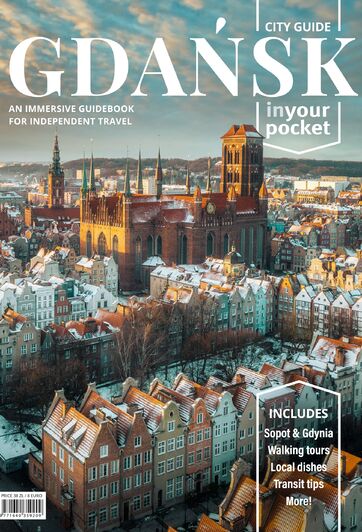Memories of the 1980s - The Pole
more than a year ago‘I was part of the strike, but on the other side of the wall. We would stand around all day on pl. Solidarnośći handing out food to the strikers that the neighbouring women had made. Throughout the strike there was a serene atmosphere. It wasn‘t like 1970 when we stormed the party gates, this time everything was different, everything was calm. There were no tanks, no militia. We had learnt our lessons. This time around the protestors locked themselves into the shipyards. They were desperate not to antagonize the government, that‘s why there was a strict no drinking law enforced - we didn‘t want some silly drunk causing trouble‘.
His memories of the 1970 protests still haunt him. Having gathered outside the local communist headquarters after school he was detained by the ZOMO (militia) for throwing stones, handcuffed to a pole inside a police van and battered with truncheons. He was only released after a passing soldier threatened to open fire on the militia if they did not stop.
Like many Poles he never thought that the strikes would go on to change Europe‘s political map. ‘It was beyond our wildest dreams that we would actually change anything politically. What we wanted was more money. Salaries hadn‘t been raised for years, and prices were going up. We were fighting for our own needs, not political ideologies. Our concern was to show solidarity with the shipyard workers. As normal workers we just wanted a voice. We knew we couldn‘t change the system, but we hoped to at least improve our standard of life. In those days you‘d have five people living in a one bedroom flat. The waiting list for property was twenty years! The strike taught us not to be afraid of the rulers, and that the Polish people should take the initiative, not wait for help from the outside world. After the strike we were optimistic. The leaders had listened to us, and there was a Polish pope. We knew that things would change‘.
But the immediate changes were anything but positive. Six months after the August Accords Jabłonka remembers the economic crisis that gripped Poland: ‘There was literally only vinegar and mustard on the shelves. We know now that this is because the system had collapsed, but at the time a lot of people thought that the government were deliberately punishing us.’
Like other Poles Jabłonka took to living off his wits, wheeling and dealing to forge a living. ‘Before the strikes I‘d go up to Sobieszewo and visit the fishermen. Officially they were meant to declare all their catch and hand them over to the fishing association. In actual fact they‘d claim to have caught nothing and then sell their spoils on privately. I‘d buy two big suitcases of eels, then sell them within thirty minutes back in Gdańsk. You‘d earn in one day what a normal person would earn in a month. If the police came over you‘d slip them a couple of eels.’ With public transport cancelled during the strikes he took to producing statues of Westerplatte which would then be sold to holidaying miners from the Śląsk region. ‘You had to be resourceful. There were queues and rations for everything: meat, honey, sugar, shoes. I remember a Restaurant in Oliwa called Kameleon. The owner would open the doors at 13:00, and pour out six bottles of vodka into glasses. A queue would form, the drinks would go, and then the owner would close the bar straight away‘.
He recalled the gloom and pessimism of Martial Law: ‘It was a war against the Polish nation. Phone calls were monitored and the streets were full of tanks. At night a curfew was enforced, and all that you‘d get on the TV was propaganda. The only source of real news would be Radio Free Europe‘.
Surprisingly there is not bitterness towards the system, just the matter-of-fact defiant spirit typical of this country: ‘The Poles coped under Hitler, and we coped under communism‘.



Comments